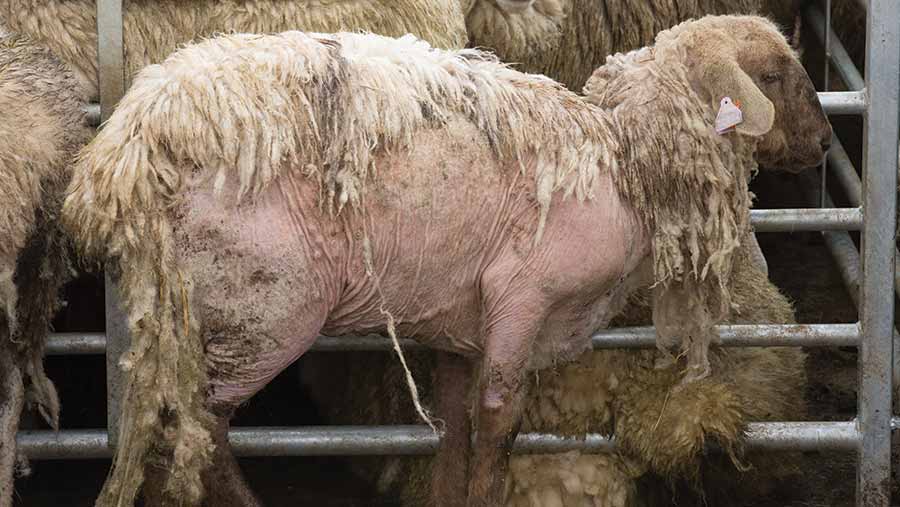Wales calls for more holistic approach to sheep scab control
 © Tim Scrivener
© Tim Scrivener A more holistic approach to stopping sheep scab is necessary, including neighbours working together on scab control, says a new report.
The report has been created by Welsh farming unions, sheep industry representatives and veterinary experts, who are now calling for the Welsh government to provide the multimillion-pound funding needed to implement its recommendations.
The recommendations aim to help farmers deal with outbreaks and even eliminate sheep scab in Wales.
See also: Advice on managing scab
What is sheep scab?
Sheep scab is caused by the mite Psoroptes ovis. Cattle are rarely affected. Mites are most commonly transmitted by direct contact with infested sheep. Sheep scab can be introduced to a flock by carrier sheep, including purchased animals, sheep returning from grazing and strays, especially on common grazing.
Sheep scab is characterised by intense itching, with repeated rubbing of the shoulders and flanks along the ground or against fences, foot stamping, clawing at the flanks, and biting the shoulders. Tufts of wool are characteristically seen on fences and hedges.
The recommendations include:
- Farmers working together to prevent and manage the disease
- Ensuring that no sheep are left out on the hills when attempting to treat for scab
- Keeping sheep off infected land or out of infected housing for 17 days to prevent reinfection
- Practising good quarantine procedures
Dr Neil Paton, lecturer in farm animal health and production at the Royal Veterinary College and collaborator on this paper, said: “Sheep scab is an insidious problem and has significant welfare implications for infected sheep.
“It is therefore highly important that sheep scab eradication is funded in Wales.”
